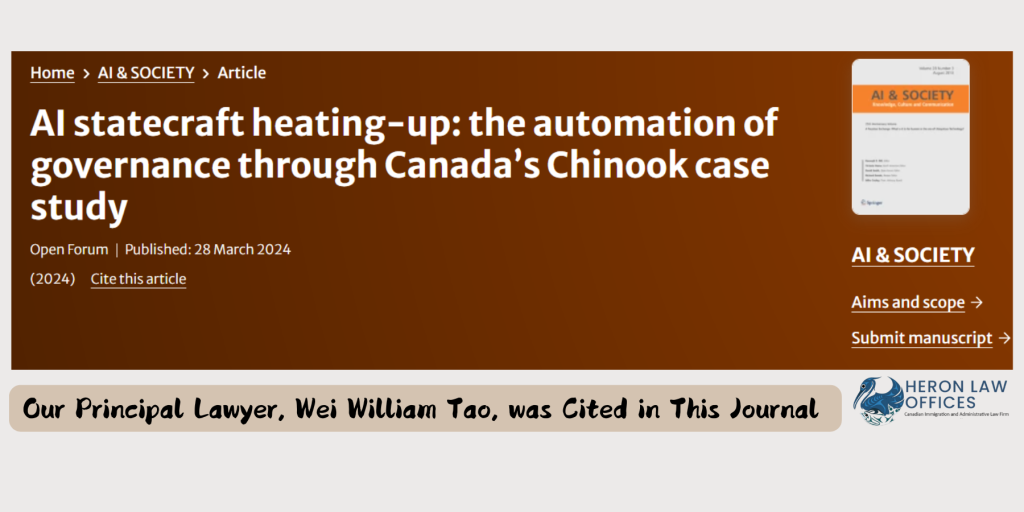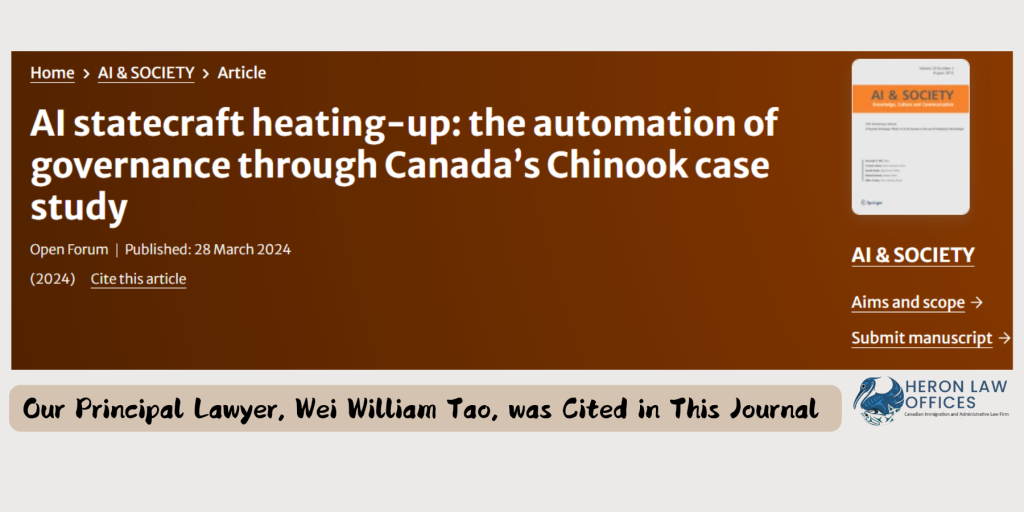
As always, our principal lawyer, Will Tao has been a thought leader in the automated decision-making system in Canadian immigration. His Vancouver Immigration Blog post titled Chinook is AI – IRCC’s Own Policy Playbook Tells Us Why has been cited in the journal article AI statecraft heating-up: the automation of governance through Canada’s Chinook case study | AI & SOCIETY (springer.com). This article was published in an international journal: AI & Society – Knowledge, Culture and Communication.
The journal cited Will’s arguments on Chinook being used by the Immigration, Refugees and Citizenship Canada (IRCC), which should be considered an artificial intelligence (AI) system due to its degree of automation in decision-making. The journal highlighted several key points made by Will:
- Automation: Chinook assists officers in approving or refusing cases by automating parts of the decision-making process. This suggests a significant level of automation in how cases are processed.
- Decision-Making Process: Will notes that Chinook has altered the traditional decision-making process. Specifically, it promotes a “decide first, justify later” approach by generating refusal notes automatically, which changes how decisions are documented and justified.
- Role of AI: Will argues that Chinook’s role in automating logical reasoning and generating frameworks indicates that it operates as an AI system. He believes that without the AI components, Chinook’s framework and its role in automating decision-making would not exist.
Will’s critique emphasizes the lack of transparency and the implications of automation in Chinook’s functioning, suggesting that the system’s AI capabilities are integral to its operation and should be acknowledged and scrutinized as such.




